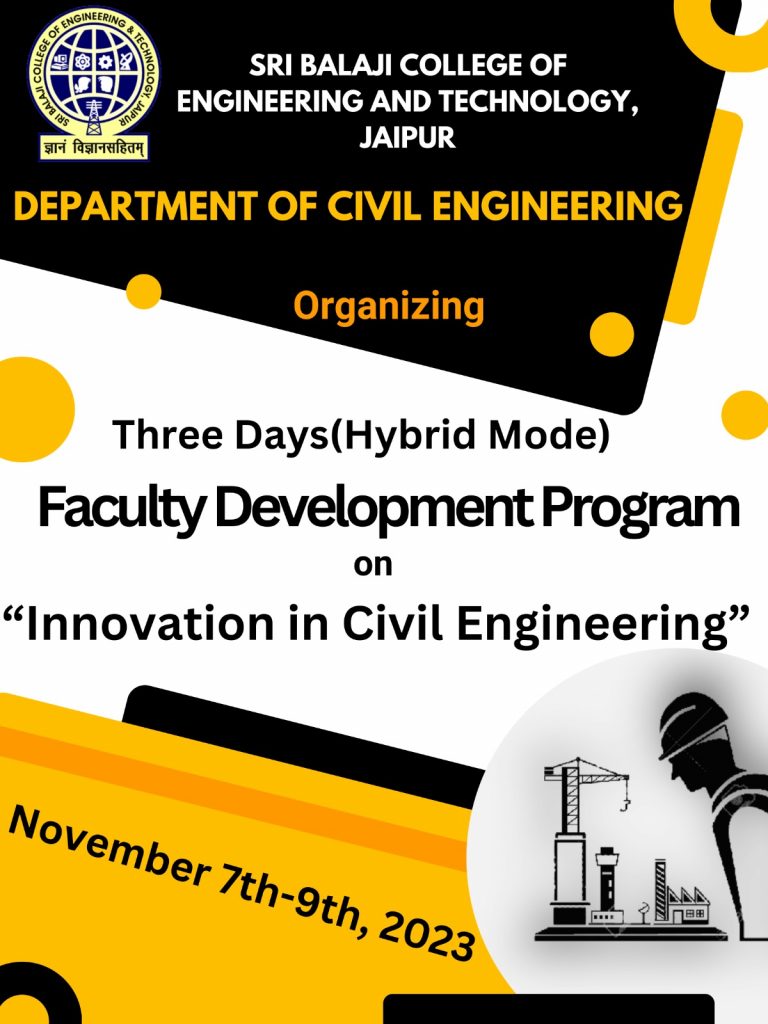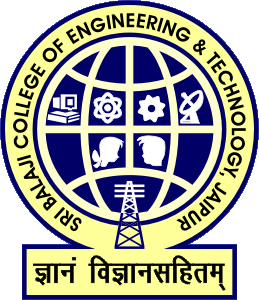
The primary objective of this FDP is to update faculty members with the latest innovations and technologies in the field of civil engineering. It aims to equip them with the knowledge and tools required to train the next generation of engineers to meet the evolving challenges in the industry.
Program Highlights
- Detailed Learning: Our program offers a holistic approach to understanding the most recent innovation, technologies, and challenges in the field of civil engineering. Participants will gain a well-rounded perspective that covers the entire spectrum of advancements.
- Latest insights: In today’s rapidly evolving world, staying current is crucial. The FDP ensures that participants are equipped with the latest advancements, enabling them to remain at the forefront of their profession.
- Enhanced Teaching and Research: Faculty members will find this program invaluable for improving their teaching methodologies and research capabilities. It empowers them to impart cutting-edge knowledge to their students, fostering an environment of innovation.
- Collaboration Prospects: Collaboration is key to progress. The FDP provides a platform for participants to connect with experts and peers, opening doors to potential collaborations, joint research projects, and the sharing of best practices.
Expected Outcomes
- Enhanced Knowledge: Faculty members who attend the FDP should gain a deeper understanding of the latest innovations, trends, and emerging technologies in civil engineering.
- Updated Curriculum: Participants can update and improve their course materials, integrating new knowledge and innovative approaches into their teaching curriculum.
- Improved Teaching Methodologies: Faculty members can learn and apply innovative teaching methods, making their classes more engaging and effective.
- Research Collaboration: FDPs often provide opportunities for participants to collaborate on research projects, fostering a culture of innovation and research within their institutions.
- Networking: Faculty members have the chance to network with peers, industry experts, and researchers, potentially leading to collaborative research projects, partnerships, and shared knowledge.
- Publication and Research Opportunities: Participation in FDPs can lead to opportunities to publish research findings and present at conferences, contributing to the academic community.
- Professional Development: Faculty members can enhance their professional development, possibly leading to promotions or recognition within their institutions.
- Strengthened Industry Connections: By staying updated on industry innovations, faculty members can better prepare students for real-world challenges and enhance industry-institution relationships.
- Incorporation of Sustainable Practices: Faculty members may learn how to incorporate sustainable and eco-friendly practices into their teaching and research, contributing to environmental and social responsibility.
- Advanced Use of Technology: FDPs often expose faculty members to cutting-edge technology, which can be integrated into their courses and research projects.
- Better Student Outcomes: Improved teaching methods, updated content, and a focus on innovation can lead to better learning outcomes for students.
- Increased Institutional Reputation: When faculty members are engaged in innovative teaching and research, it can enhance the reputation of the institution.
- Enhanced Problem-Solving Skills: Faculty members may develop improved problem-solving skills, which they can impart to their students, better preparing them for future challenges in the field.
